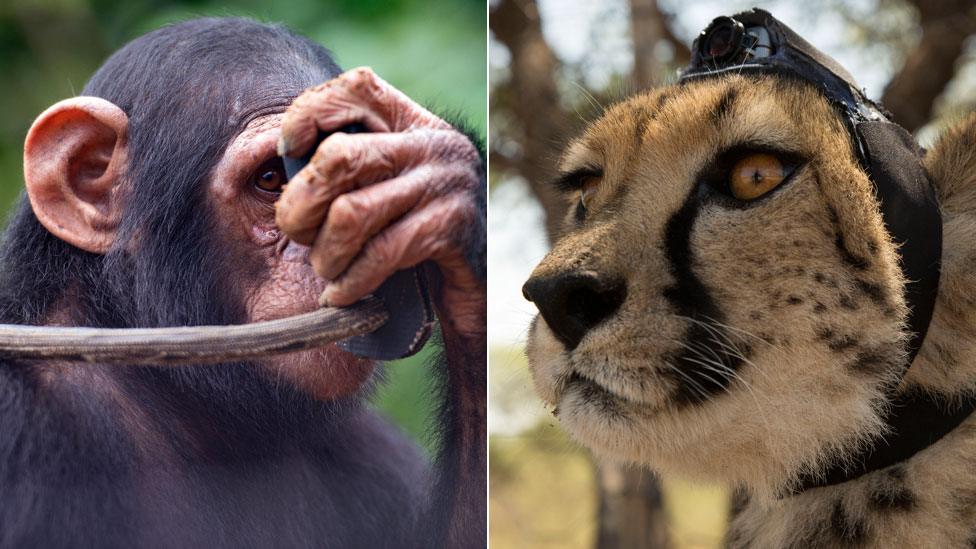Sir David Attenborough series Dynasties tackles nature's 'lack of space'
- Published
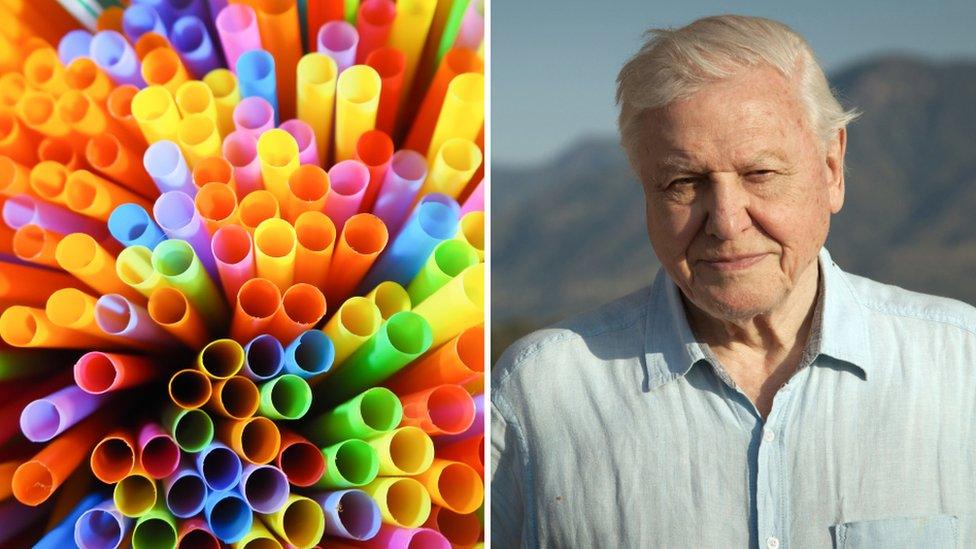
You might have noticed something different when ordering a drink in a bar or restaurant recently.
Many companies now use paper straws in their drinks. Some have done away with straws altogether. Others keep plastic straws behind the counter, only available on request.
It might not sound like a huge deal - but it's a sign of the significant change in the attitude the public, the government and major corporations have towards plastic.
And, as Prime Minister Theresa May has acknowledged, that change is largely thanks to Blue Planet II - the nature series fronted by Sir David Attenborough, broadcast last winter.
But, the presenter tells BBC News, influencing government policy isn't his top priority when making such series.
"We all have responsibilities as citizens, but our primary job is to make a series of programmes which are gripping, truthful, and speak about something quite important," he says.
"These aren't ecological programmes, they're not proselytising programmes, they're not alarmist programmes, what they are is a new form of filmmaking, and a new form of wildlife filmmaking."
Hot on the heels of Planet Earth II and Blue Planet II comes this year's Attenborough-fronted programme: Dynasties.
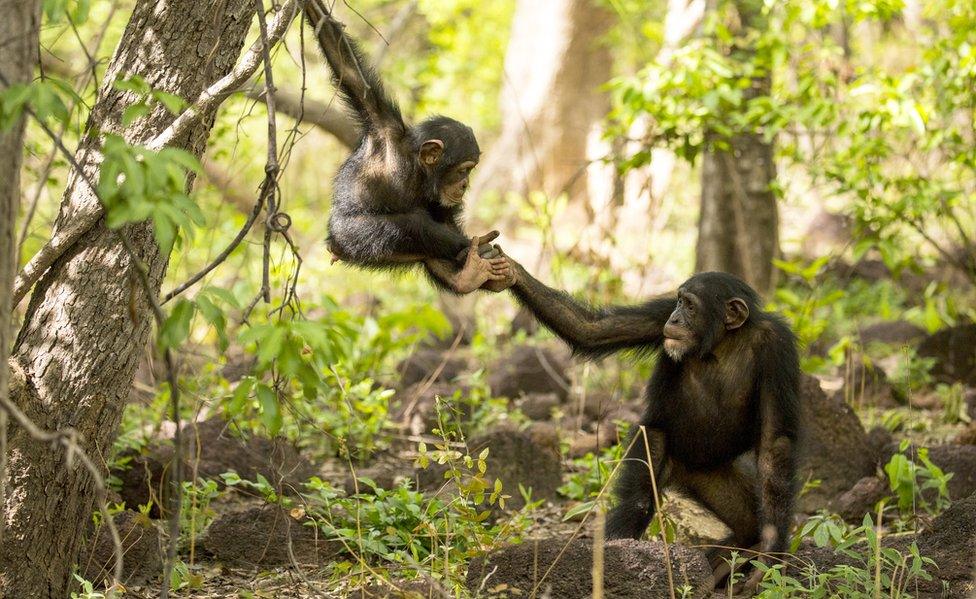
The five episodes of this series, which begins on Sunday, are broken down into chimpanzees, lions, penguins, tigers and wolves.
After Planet Earth II's snakes and iguanas chase won a TV Bafta for must see moment, is there a similarly breathtaking sequence in Dynasties?
"Not one, there are several, there are truly several," Sir David says. "There's certainly one in the opening programme, which is when an old chimp is beaten up.
"What we have said is, we will show what happens. We are not going to tart this up, we're not going to distort it in any way. If it's a triumph, fine, if it's a tragedy, that too we will show."
Dynasties may not have quite the same overt political message as Blue Planet II, but there was one issue which kept recurring, says executive producer Michael Gunton.
"This series is about the problem, for a lot of these creatures, that there just isn't enough space for them to survive," he explains.
"Space is not as sexy as plastic, it's a harder thing to get your head around, it's a much bigger issue, so [with] the individual struggles in these creatures lives, that's a very good way of bringing it to attention."
Gunton singles out tigers as a prime example. He says a successful breed of tigers in a reserve means a "pressure cooker" is created by their increasing population.
"They're very good breeders, good at looking after their young... it's just they don't have the space," he explains.
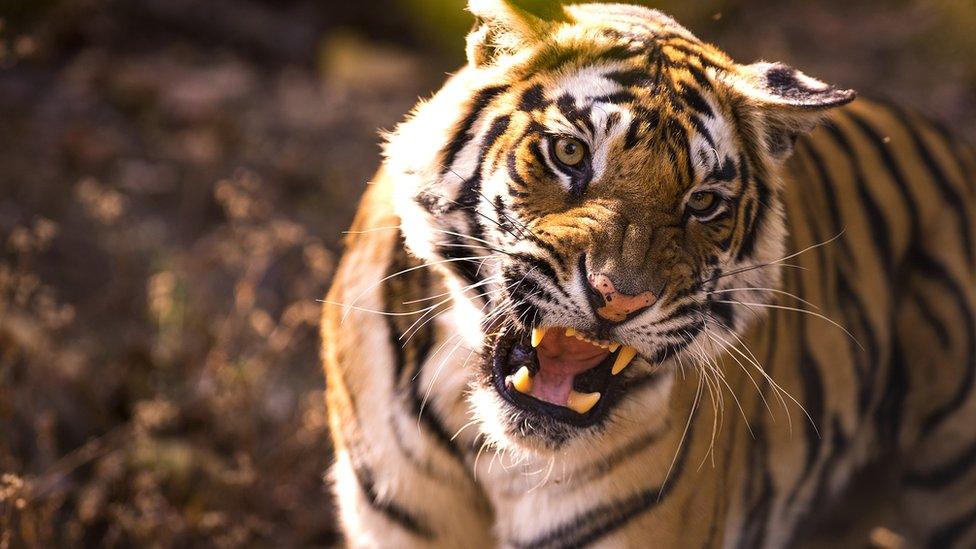
"And then all these issues start to occur - they leave the park, they cross paths with humanity and often that's not with very happy results."
That particular episode sees one tiger in India take the risky decision to leave her reserve to hunt for food, as rival tigers, seeking their own territory, are encroaching on her hunting lands.
It's not long before people spot her and call the forest department, who tranquilise her and eventually return her to the reserve.
'Terrible problem'
One issue that has repeatedly cropped up with nature documentaries in recent years is whether filmmakers should interfere with what they see while shooting.
Sir David has previously said, external: "If you're a film cameraman you are trained as it were to be the observer, a non-participant. That's very important."
But witnessing animals in distress can be difficult for crews, who have been known to occasionally intervene.
In 2016's Planet Earth II, the BBC confirmed, external producers had stepped in to rescue some stranded baby turtles.
Last year, Blue Planet II producer James Honeyborne said, external: "If you see a turtle trapped in a plastic bag or you see a humpback whale wrapped up in fishing gear, you've got to step in, that's human nature isn't it?"
The episode of Dynasties focusing on emperor penguins threw up a similar dilemma.
A number of females are seen getting blown into a gully in a storm, unable to to get out because of the steep walls of snow and ice they are surrounded by.
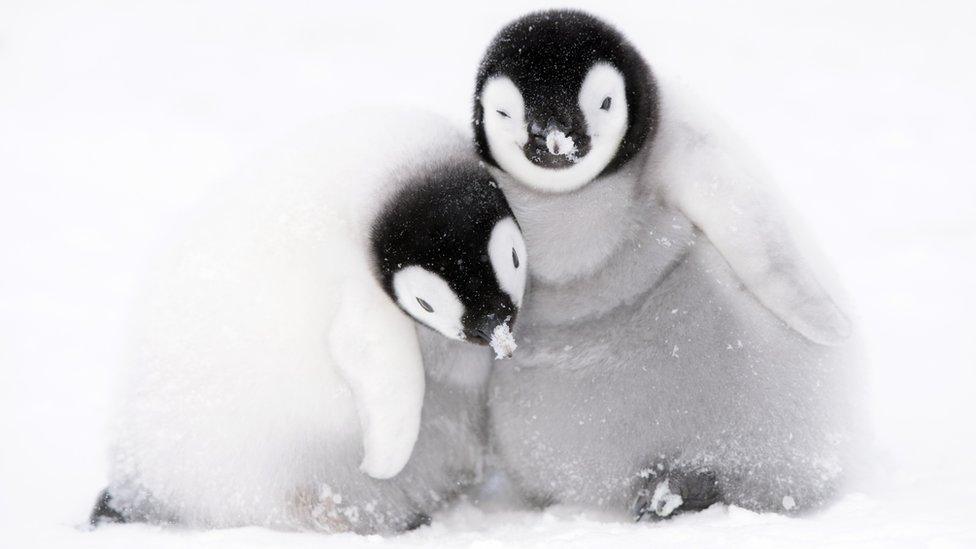
"They have this terrible problem that they can't move very well when they've got the chicks on their feet, because if the chicks fall to the ground and when they're that age they'll die," Gunton says.
"And there was this very steep side, and they couldn't climb out because they couldn't move their feet effectively enough. So some of them had to make a horrible decision, which was to save themselves and abandon their chicks.
"One individual managed to use her beak effectively as an ice pick and work her way up and get to the top of this ice wall and escape."
The camera crew then took a break from filming as another storm moved in, but they returned to the gully soon after.
"It was clear that unless [the other penguins] had the wit to do that, which most of them didn't seem to have, they were all going to die," Gunton continues.
"We talked to a scientist there and said, if we can just reduce that slipperiness of the slope, we're not going to touch any of them, that might mean they can find their way out. And that will mean a significant number of these precious creatures will survive."
That is precisely what the team ended up doing. They created little notches in the slope, effectively creating some steps for the penguins to find their own way up and out.
"Weirdly, if people knew we'd had the opportunity to do that and we hadn't, that would've been a much more difficult thing to answer," Gunton says.
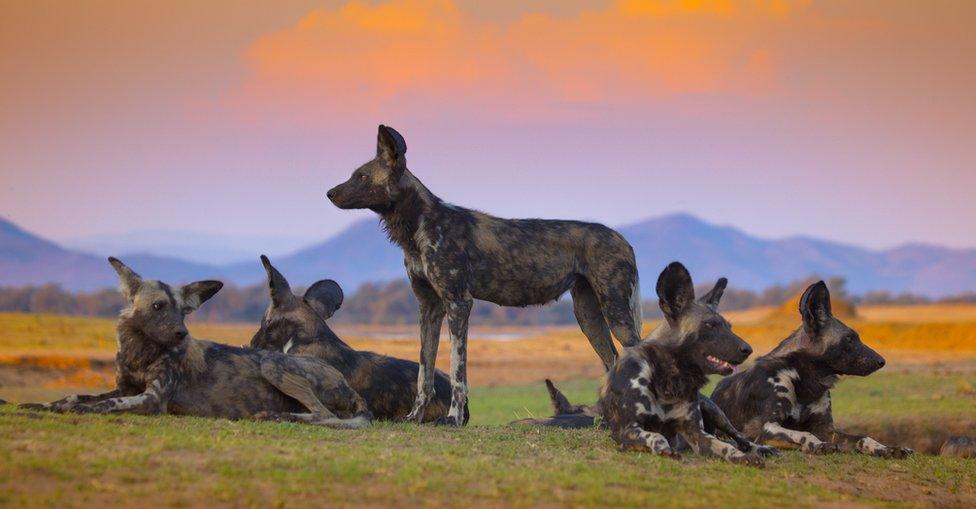
Perhaps one of the most intriguing aspects of the nature documentaries Sir David fronts is their huge popularity with young audiences.
He acknowledges that escapism might be a key part of the appeal of such series. Regardless of what side of the political divide you're on, often, you just want to switch off.
"I think all of us faced with what we are faced with, Brexit, every time you turn on the television set, you get it," he says.
"I certainly watch the news all the time, and to get a programme about something which is more fundamental and more elemental, and also absolutely true, I wouldn't say it's an escape, because it's reality, but it's a great change and a great relief.
"The fact that it has overtones and implications into our own lives and our own decisions, is as it should be. But it's as far as you can get away from the political landscape which otherwise dominates your thoughts."
Dynasties begins on Sunday 11 November on BBC One at 20:30 GMT.
- Published1 December 2016
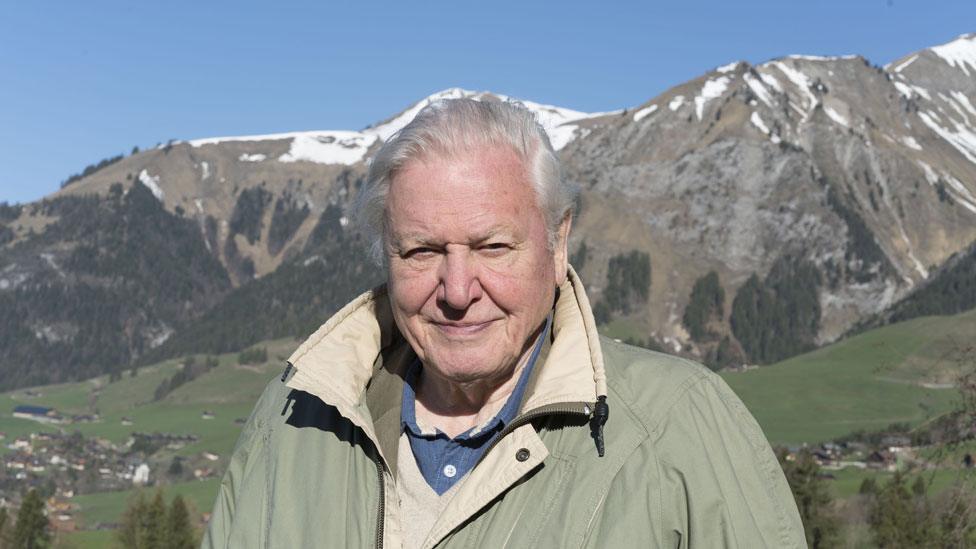
- Published29 October 2017
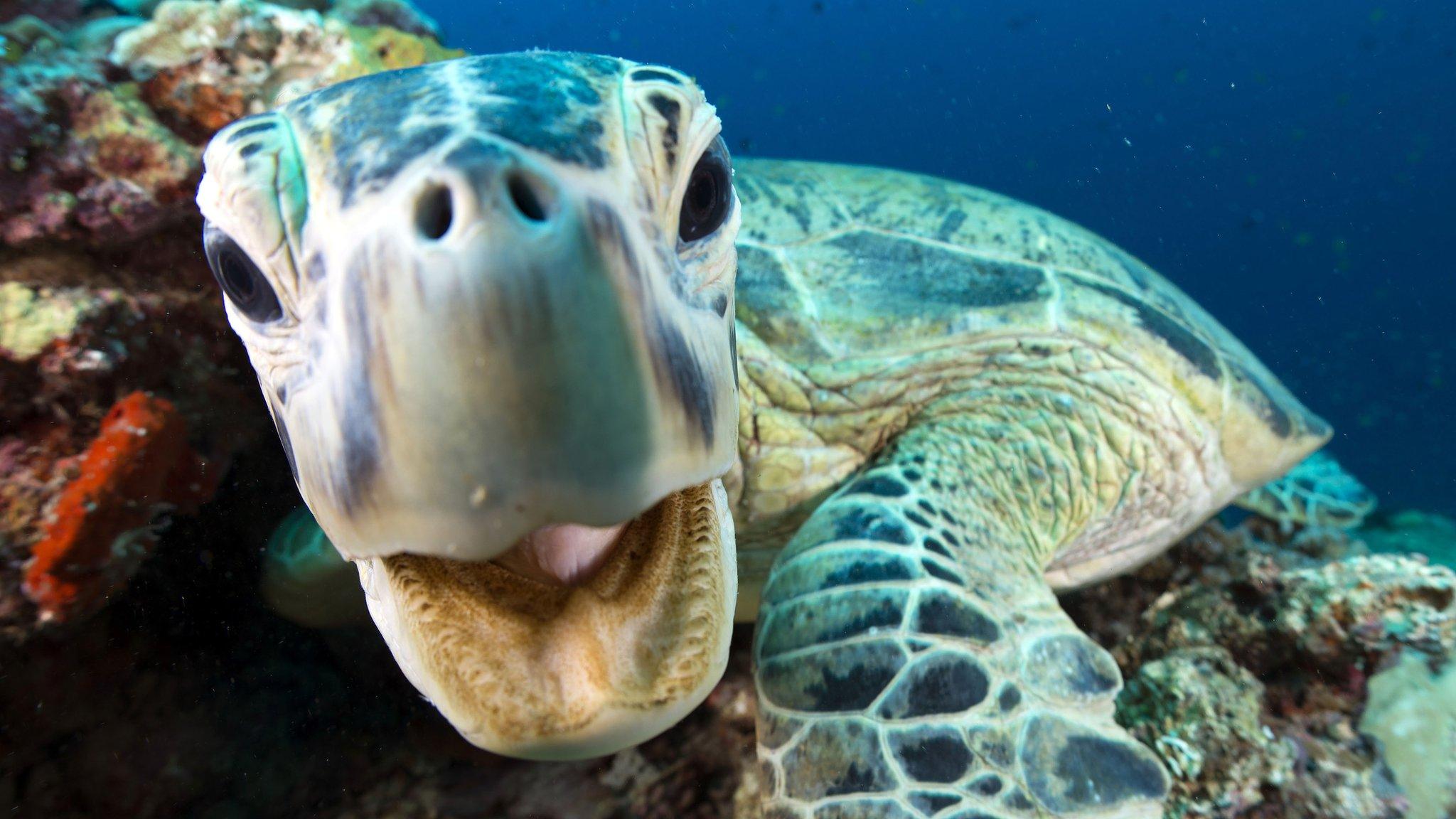
- Published1 February 2018
